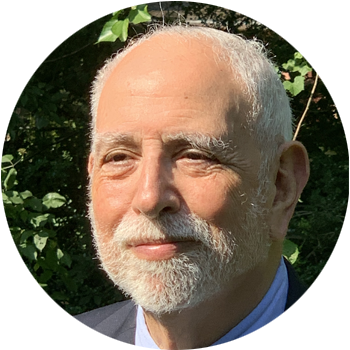1.5 Hours | 1.5 CEs
This on-demand professional training program on “Folk Psychology,” Heuristics, “Ordinary Common Sense,” & Mental Disability Law is presented by Michael Perlin, JD, and Heather Ellis Cucolo, JD, in partnership with Mental Disability Law and Policy Associates (MDLPA)
This program explores the influence of "folk psychology," heuristics, and false operational causal sequences (OCS) in forensic contexts and their detrimental effects on the judicial fact-finding process. Participants gain a comprehensive understanding of how these factors corrupt the integrity of trials and appeals, leading to flawed forensic testimony.
The program delves into critical case law that highlights the harmful consequences of relying on these informal reasoning methods, demonstrating their pervasive impact on legal outcomes. The program also examines the principles of therapeutic jurisprudence, outlining its potential to mitigate the harms caused by these false reliance practices. Through this framework, participants learn to advocate for more accurate and scientifically grounded approaches in forensic assessments and courtroom proceedings.
Testimony in forensic mental disability law cases is riddled with assumptions about people with mental disabilities: what they “are like,” how they think, what they know, how they act, how they respond to stimuli. In its most recent term, the Supreme Court jumped into this conversation by ruling, in a drug case, that testimony about what a drug courier likely “knew” did not violate the Federal Rules of Evidence that prohibited the stating of opinions as to whether a defendant did or did not have mental state or condition that constituted an element of crime charged (Diaz v. United States, 2024).
Broadly, a wide range of assumptions – most negative and virtually all employed without a shred of valid/reliable evidence, but based on a false “folk psychology,” contaminates the entire criminal justice system in cases involving this population. Much of this flows from a fatal reliance on the use of “folk psychology,” a pseudo-philosophy that purports to explain and predict human behavior, that contaminates all of forensic mental health law.
This system is sanist, pretextual, and is driven by the use of cognitive-simplifying heuristics and ordinary common sense. By incorporating principles such as therapeutic jurisprudence, we can reduce the harms done by the misplaced reliance on folk psychology (and on heuristics and false OCS) by participants in the forensic setting.
This program is intended to provide knowledge to better support evaluation and interaction with persons with a mental disability in and out of the courtroom. It is intended for all stages of their career. Areas include forensic psychology, criminal justice, social work, legal, and mental health.

Intended Audience
This on-demand professional training program is intended for mental health and other allied professionals

Experience Level
This on-demand professional training program is appropriate for beginner, intermediate, and advanced level clinicians.

CE / CPD Credit
APA, ASWB, CPA, NBCC Click here for state and other regional board approvals.
Learning Objectives
Upon completion of this program you will be able to:

Describe how “folk psychology” can contaminate the criminal justice system in cases involving persons with a mental disability

Analyze the ways in which ordinary common sense pervades expert testimony and perpetrates evidence-lacking assumptions about behavior

Describe the concepts of sanism, pretextuality, and heuristic reasoning in prominent case law decisions that rely significantly on folk psychology

Describe how the use of therapeutic jurisprudence can correct the harms done by the misplaced reliance on folk psychology (and on heuristics and false OCS) by participants in the forensic setting

Curriculum
1. Compounding Factors
2. Folk Psychology in Forensic Evaluations
3. Folk Psychology in the Courtroom
4. Therapeutic Jurisprudence
Develop a Specialty Area of Practice
Transforming mental health professionals into experts
Expert Instructors
Professional training developed and delivered by the field's leading experts

CE Credit
Earn CE credit for meaningful professional training that will elevate your practice
Convenience & Flexibility
Learn at your own pace, from wherever you might be!
Program Partner
Mental Disability Law and Policy Associates
We are proud to partner with Mental Disability Law and Policy Associates, LLC for this training. MDLPA is a boutique educational training company that offers specialized mental disability law consulting, the creation or enhancement of distance learning programs, in-house or online courses, and day or weekend training seminars to reputable organizations, educational institutions, professional groups, and advocacy groups focused on providing advanced knowledge and skills to persons working with marginalized populations.

CE Sponsorship Information
Palo Alto University, Continuing and Professional Studies (CONCEPT) is approved by the American Psychological Association to sponsor continuing education for psychologists. Palo Alto University, Continuing and Professional Studies (CONCEPT) maintains responsibility for this program and its content. Palo Alto University, Continuing and Professional Studies (CONCEPT) is approved by the Canadian Psychological Association to offer continuing education for psychologists. Palo Alto University, Continuing and Professional Studies (CONCEPT), SW CPE is recognized by the New York State Education Department’s State Board for Social Work as an approved provider of continuing education for licensed social workers #SW-0356 and the New York State Education Department’s State Board for Mental Health Practitioners as an approved provider of continuing education for licensed mental health counselors. #MHC-0073. Palo Alto University, Continuing and Professional Studies (CONCEPT) has been approved by NBCC as an Approved Continuing Education Provider, ACEP No. 6811. Programs that do not qualify for NBCC credit are clearly identified. CONCEPT Professional Training, #1480, is approved to offer social work continuing education by the Association of Social Work Boards (ASWB) Approved Continuing Education (ACE) program. Organizations, not individual courses, are approved as ACE providers. State and provincial regulatory boards have the final authority to determine whether an individual course may be accepted for continuing education credit. CONCEPT Professional Training maintains responsibility for this course. ACE provider approval period: 11/22/23-11/22/26. Social workers completing this course receive (clinical or social work ethics) continuing education credits.


